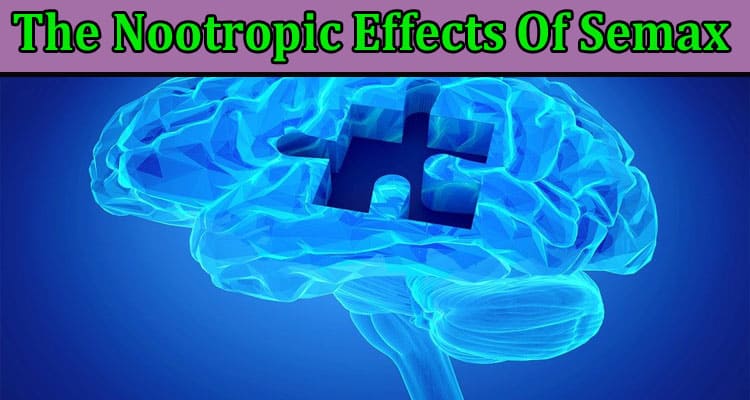Semax is a synthetic polypeptide hypothesized to mimic the biologically active portion of the human hormone adrenocorticotropic hormone fragment 4-10 (ACTH 4-10).
The adrenocorticotropic hormone is a peptide hormone generated by the anterior pituitary gland. Fragment 4-10 is the part of the hormone that stimulates the adrenal glands. Despite lacking the hallmark ACTH properties, this fragment does have a distinct impact on the brain, including improving memory and attention. Semax, a chemically related compound, is thought to have some of the same effects on the body. Visit this website for more resources.
Semax Peptide History
The Institute of Molecular Genetics at a Russian university in Moscow created Semax on Russia’s official “Vital and Essential Drugs List”. More research is needed to determine the substance’s potential and effectiveness before researchers may use it clinically. Nootropic substances have been developed for 30 years to enhance cognitive (memory) performance. The word “nootropic” refers to monitoring the mental state.
Naturally produced peptides in the body’s system manage the major regulatory systems, including the nervous system, and serve many biological purposes. The major downside of these naturally occurring peptides is that they are very unstable, i.e., they are readily degraded by the biological enzymes present in gastrointestinal, cerebrospinal, and other bodily fluids. Therefore, active research and study aimed at synthesizing analogs of such peptides, which are believed to exhibit the same biological activity but seem very stable.
Semax is one such peptide; it is a synthetic version of adrenocorticotropic hormone (ACTH), a naturally occurring human hormone. Research suggests it may have the same nootropic potential as ACTH but could be far more stable in the body.
There is insufficient information on Semax to establish a specific mechanism of action. Nonetheless, there are several hypotheses grounded on scientific studies about the mechanisms through which Semax peptide may manifest its potential in the body:
Semax Peptide and Enzymes
Research has suggested that Semax may block certain enzymes in the body that control enkephalin breakdown. Enkephalins are naturally occurring neurotransmitters primarily produced in the brain and have control over various physiological processes.
Investigations purport that Semax may inhibit several additional peptide-degrading enzymes released in serum, similar to enkephalins. Because of this, Semax has been hypothesized to exert its biological effects by keeping a healthy balance of the necessary peptides in the body.
Semax Peptide and Brain-Derived Neurotrophic Factor
In the same way, as psychostimulants boost dopamine and BDNF levels in the brain, a recent study indicated that Semax may have had a comparable effect. As a result of the Semax peptide presentation, concentration levels appeared to rise, which seemed to facilitate cognitive maturation.
The imbalance between these two hormones is thought to have a role in developing attention deficit hyperactivity disorder (ADHD). Studies assert that Semax’s adjuvant potential in the context of attention deficit hyperactivity disorder stems from its alleged capacity to increase these hormones.
Semax Peptide and Genes
According to this research, Semax seems to influence the gene expression that plays a role in immunological regulation. Because of its potential to modulate gene expression, the number and mobility of immune cells are theorized to increase. The findings of one study implied that the genes involved in encoding chemokines and immunoglobulins seemed among the most affected by Semax regarding expression among immune cells. Semax has been speculated to use this mechanism to maintain and improve cardiovascular health.
Semax Peptide Properties
Studies in animals and in vitro suggest the following theorized applications of Semax peptide:
- Possible nervous system properties: it might help shield nerves from harm.
- Possibly improved cognitive abilities (e.g., better memory) due to nootropic potential.
- Possible prevention of cardiovascular disease and stroke.
- Possible use in the context of attention deficit hyperactivity disorder (ADHD) owing to its stimulating effect on cognitive growth and enhancing focus.
- Possible adjuvant in reducing anxiety and discomfort.
- Possible neuroprotective effects
One hundred subjects with ischemic stroke were recruited in this randomized controlled experiment. Thirty research models received Semax in addition to the standard approach, while the other subjects were assigned to the control group and received just standard treatment.
When Semax was used with standard treatment, the pace at which impaired neurological functions recovered appeared significantly increased. Experts examined the data using EEG mapping. This research indicated that Semax might help in the context of neurological illnesses and nerve damage, most likely in combination with existing options.

